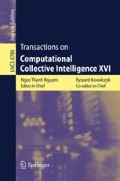Abstract
We show how, under certain conditions, programs written in the behavioral programming approach can be modified (e.g., as a result of new requirements or discovered bugs) using automatically-generated code modules. Given a trace of undesired behavior, one can generate a relatively small piece of code, whose execution is interwoven at run time with the rest of the system, and which brings about the desired changes without modifying existing code and without introducing new bugs. At the core of our approach is the ability of a thread of behavior to prevent the triggering of events from other threads. Our repair algorithms apply model checking of safety and liveness properties to the program and transform the counterexamples produced by the model-checker into corrective modules. The work is supported by a proof-of-concept tool, which creates understandable modules that can be further manually managed as part of a process of ongoing incremental system development.
Access this chapter
Tax calculation will be finalised at checkout
Purchases are for personal use only
References
Aminof, B., Ball, T., Kupferman, O.: Reasoning about systems with transition fairness. In: Baader, F., Voronkov, A. (eds.) LPAR 2004. LNCS (LNAI), vol. 3452, pp. 194–208. Springer, Heidelberg (2005)
Arcuri, A., Yao, X.: A novel co-evolutionary approach to automatic software bug fixing. In: Proceedings of the 10th IEEE Congress on Evolutionary Computation (CEC), pp. 162–168 (2008)
Baier, C., Katoen, J.-P.: Principles of Model Checking. MIT Press, Cambridge (2008)
Bloem, R., Jobstmann, B., Piterman, N., Pnueli, A., Sa’ar, Y.: Synthesis of reactive(1) designs. J. Comput. Syst. Sci. 78, 911–938 (2012)
Chatterjee, K., Henzinger, T.A., Jobstmann, B.: Environment assumptions for synthesis. In: van Breugel, F., Chechik, M. (eds.) CONCUR 2008. LNCS, vol. 5201, pp. 147–161. Springer, Heidelberg (2008)
Damm, W., Harel, D.: LSCs: breathing life into message sequence charts. J. Form. Methods Syst. Des. 19(1), 45–80 (2001)
Dijkstra, E.W.: Hierarchical ordering of sequential processes. Acta Inf. 1, 115–138 (1971)
Harel, D., Kugler, H., Marelly, R., Pnueli, A.: Smart play-out of behavioral requirements. In: Aagaard, M.D., O’Leary, J.W. (eds.) FMCAD 2002. LNCS, vol. 2517, pp. 378–398. Springer, Heidelberg (2002)
Harel, D., Lampert, R., Marron, A., Weiss, G.: Model-checking behavioral programs. In: Proceedings of the 11th International Conference on Embedded Software (EMSOFT), pp. 279–288 (2011)
Harel, D., Marelly, R.: Come, Let’s Play: Scenario-Based Programming Using LSCs and the Play-Engine. Springer, Berlin (2003)
Harel, D., Marron, A., Weiss, G.: Programming coordinated behavior in Java. In: D’Hondt, T. (ed.) ECOOP 2010. LNCS, vol. 6183, pp. 250–274. Springer, Heidelberg (2010)
Harel, D., Marron, A., Weiss, G.: Behavioral programming. Commun. ACM 55(7), 90–100 (2012)
Harel, D., Marron, A., Weiss, G., Wiener, G.: Behavioral programming, decentralized control, and multiple time scales. In: Proceedings of the SPLASH Workshop on Programming Systems, Languages, and Applications Based on Agents, Actors, and Decentralized Control (AGERE!), pp. 171–182 (2011)
Harel, D., Pnueli, A.: On the development of reactive systems. In: Apt, K.R. (ed.) Logics and Models of Concurrent Systems. NATO ASI Series, vol. F-13. Springer, New York (1985)
Harel, D., Segall, I.: Planned and traversable play-out: a flexible method for executing scenario-based programs. In: Grumberg, O., Huth, M. (eds.) TACAS 2007. LNCS, vol. 4424, pp. 485–499. Springer, Heidelberg (2007)
Jin, G., Song, L., Zhang, W., Lu, S., Liblit, B.: Automated atomicity-violation fixing. In: Proceedings of the ACM SIGPLAN Conference on Programming Language Design and Implementation (PLDI) (2011)
Jobstmann, B., Griesmayer, A., Bloem, R.: Program repair as a game. In: Etessami, K., Rajamani, S.K. (eds.) CAV 2005. LNCS, vol. 3576, pp. 226–238. Springer, Heidelberg (2005)
Manna, Z., Pnueli, A.: The Temporal Logic of Reactive Systems: Specification. Springer, New York (1992)
Pnueli, A., Rosner, R.: On the synthesis of a reactive module. In: Proceedings of the 16th ACM Symposium on Principles of Programming Languages (POPL), pp. 179–190 (1989)
Staber, S., Jobstmann, B., Bloem, R.: Diagnosis is repair. In: Proceedings of the 16th International Workshop on Principles of Diagnosis, pp. 169–174 (2005)
Staber, S., Jobstmann, B., Bloem, R.: Finding and fixing faults. In: Borrione, D., Paul, W. (eds.) CHARME 2005. LNCS, vol. 3725, pp. 35–49. Springer, Heidelberg (2005)
Valmari, A.: The state explosion problem. In: Reisig, W., Rozenberg, G. (eds.) Lectures on Petri Nets I: Basic Models: Advances in Petri Nets. LNCS, vol. 1491, pp. 429–528. Springer, Heidelberg (1998)
Visser, W., Havelund, K., Brat, G., Park, S., Lerda, F.: Model checking programs. Autom. Softw. Eng. 10, 203–232 (2003)
Weimer, W., Forrest, S., Le Goues, C., Nguyen, T.: Automatic program repair with evolutionary computation. Commun. ACM 53, 109–116 (2010)
Wiener, G., Weiss, G., Marron, A.: Coordinating and visualizing independent behaviors in Erlang. In: Proceedings of the 9th ACM SIGPLAN Erlang Workshop (2010)
Acknowledgments
We thank A. Kantor, S. Maoz, Y. Sa’ar, S. Szekely and G. Wiener for their valuable suggestions on the manuscript. The research of D. Harel, G. Katz and A. Marron was supported by The John von Neumann Minerva Center for the Development of Reactive Systems at the Weizmann Institute of Science, by an Advanced Research Grant from the European Research Council (ERC) under the European Community’s 7th Framework Programme (FP7/2007–2013), and by the Israel Science Foundation. The research of G. Weiss was supported by the Lynn and William Frankel Center for CS at Ben-Gurion University, by a reintegration (IRG) grant under the European Community’s FP7 Programme, and by the Israel Science Foundation.
Author information
Authors and Affiliations
Corresponding author
Editor information
Editors and Affiliations
Rights and permissions
Copyright information
© 2014 Springer-Verlag Berlin Heidelberg
About this chapter
Cite this chapter
Harel, D., Katz, G., Marron, A., Weiss, G. (2014). Non-intrusive Repair of Safety and Liveness Violations in Reactive Programs. In: Kowalczyk, R., Nguyen, N. (eds) Transactions on Computational Collective Intelligence XVI. Lecture Notes in Computer Science(), vol 8780. Springer, Berlin, Heidelberg. https://doi.org/10.1007/978-3-662-44871-7_1
Download citation
DOI: https://doi.org/10.1007/978-3-662-44871-7_1
Published:
Publisher Name: Springer, Berlin, Heidelberg
Print ISBN: 978-3-662-44870-0
Online ISBN: 978-3-662-44871-7
eBook Packages: Computer ScienceComputer Science (R0)

